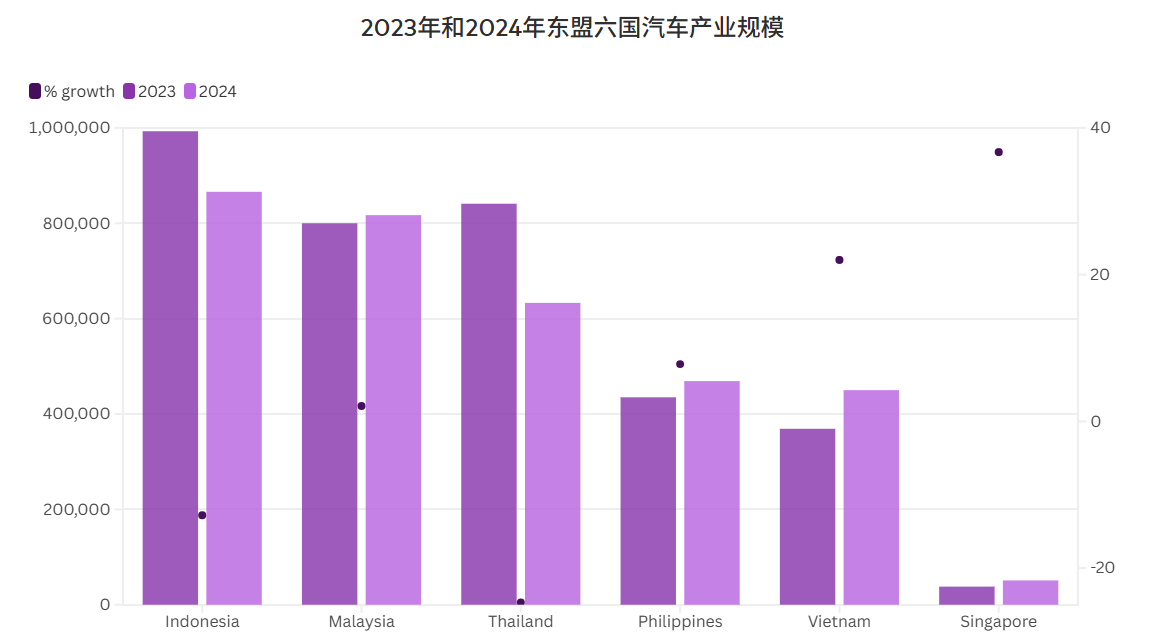Which company is the best in electric vehicles among the six ASEAN countries?
Chinese automakers are actively challenging Japan's dominance in the ASEAN market
PWC data shows that despite the strong GDP growth (2.7% to 7%) of the six ASEAN countries in 2024, the total industry production (TIV) of light vehicles (LV) dropped by 5.4% to 3.28 million units.
Specifically speaking:
- Due to the economic downturn and the tightening of auto loans, sales in Thailand and Indonesia dropped sharply by 25% and 13% respectively.
- Supported by a strong economy and backlogged orders, sales in Malaysia increased by 2%.
- Driven by government incentives and the continuous rise in environmental awareness, the adoption rate of electric vehicles in the six ASEAN countries is accelerating, surging from 9% in 2023 to 13% in 2024.

Thailand and Indonesia are leading this trend, aiming to dominate the electric vehicle manufacturing sector by 2030, while Malaysia and Vietnam are also making significant progress.
In contrast, the Philippines, Vietnam and Singapore have achieved strong growth driven by economic recovery and the launch of new vehicle models. Thailand remains the automotive production center of ASEAN, with an estimated automotive output of 1.5 million units in 2024.
The share of Chinese manufacturers has increased
The competitive landscape in the six ASEAN countries has undergone dynamic changes. Japanese original equipment manufacturers have lost market share, with their sales plummeting by approximately 12% in 2024, far exceeding the total sales decline of 5.4% in the six ASEAN countries.
Chinese automakers are actively challenging Japan's dominance in the ASEAN market and rapidly seizing market share with affordable cutting-edge electric vehicles.
In 2021-22, Chinese brands accounted for 3.4% of LV2 sales in ASEAN, and this figure is expected to rise to 5.0% by 2024. Saic Motor was initially in the leading position, but its market share dropped from 2.5% in 2021 to 1.7% in 2024. Meanwhile, BYD and Chery have driven growth. Byd's share rose from 0.1% in 2022 to 1.8%, and Chery's share increased from 1.0% in 2024 to 1.0%.


 ENGLISH
ENGLISH  USA
USA  DEUTSCH
DEUTSCH  FRENCH
FRENCH 